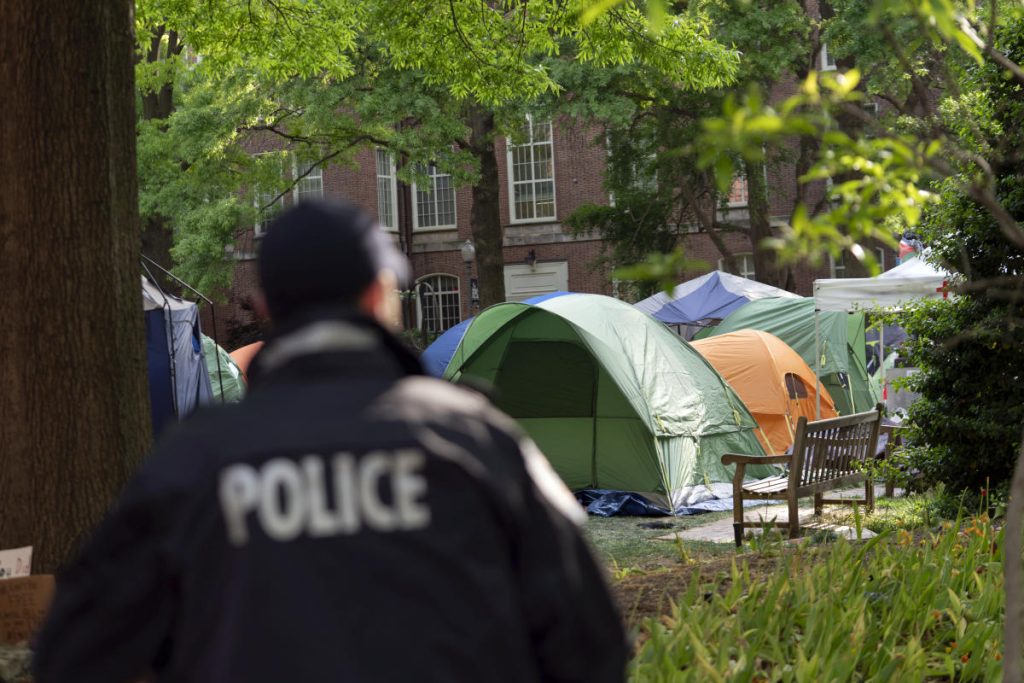As students continue to protest the Israel-Hamas war at universities across the U.S., reports of antisemitic activity among the protesters have led some universities to shut down encampments. The demonstrators are demanding that schools cut financial ties to Israel and divest from companies supporting the conflict. Jewish students have expressed fear of antisemitism on their campuses, with some protests veering into hate speech. Northeastern University and the University of Pennsylvania took action to disband encampments due to antisemitic slurs and vandalism. Columbia University has been negotiating with protesters, with tensions escalating as hundreds of arrests have been made nationwide.
Some universities, like Columbia, have faced criticism and protests from faculty members and students for calling in law enforcement to clear protests. Faculty at various universities have either initiated or passed votes of no confidence in their leadership, though these are largely symbolic gestures. The pressure on university leaders is mounting as graduation ceremonies approach and protests show no signs of abating. Several schools, including California State Polytechnic University, Humboldt, and the University of Colorado, have faced standoffs with protesters occupying campus buildings, leading to arrests and closures.
The protests have expanded beyond U.S. borders as students at the Paris Institute of Political Studies in France blocked access to a campus building and moved classes online in solidarity with the demonstrations. Several universities in the U.S., including Indiana University, Ohio State University, and the University of Connecticut, have seen clashes between protesters and police, resulting in multiple arrests. The University of Southern California canceled its graduation ceremony in response to protests and arrests on campus. Faculty members at schools like Cal Poly Humboldt, University of Texas at Austin, and Emory University have expressed their lack of confidence in their university presidents for their handling of the protests.
At Columbia University, negotiations with student protesters have reached an impasse, with the encampment still standing. While the university has voiced support for ongoing discussions with protest leaders, students have criticized the administration’s handling of the demonstrations. Columbia’s president, Minouche Shafik, faced backlash from faculty members, but trustees have maintained their support. A report by the university senate’s executive committee found that Shafik’s administration had taken actions that harmed the university, including calling in police without faculty consultation. A student protester at Columbia, Khymani James, faced backlash for past comments, leading to a ban from campus. The protest organizers have distanced themselves from James’ remarks.
The demonstrations at universities in the U.S. and abroad have highlighted the complex issues surrounding the Israel-Hamas conflict and the broader debate on divestment and financial ties. While the protests have drawn attention to the Palestinian cause, they have also brought to light instances of antisemitism and hate speech within the movement. As university leaders navigate the challenges posed by the protests, they must balance the right to free expression with ensuring a safe and inclusive campus environment for all students, regardless of their background or beliefs. The ongoing protests serve as a reminder of the power of student activism in driving change and sparking important conversations on campuses worldwide.


